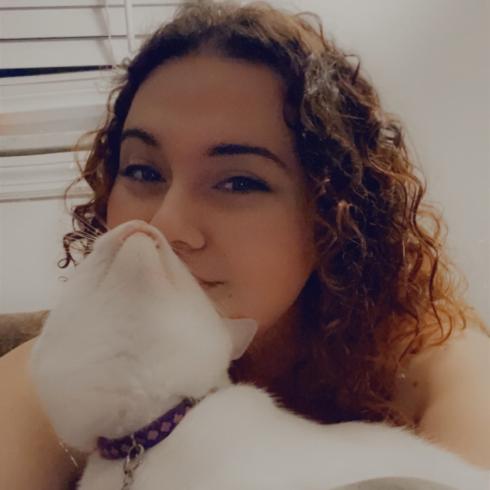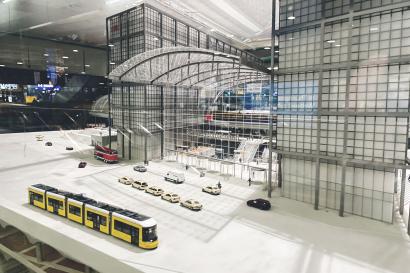If you're seriously considering going abroad, you've probably done a little bit of research on your destination country.
Before coming to Berlin, I thought myself to be pretty familiar with what was and wasn't different from my home life in the United States. I knew, of course, of the Fahrradweg, or "bike path", a part of the sidewalk reserved for bicycles (a place you definitely don't want to be walking, lest you be shouted at by a biker trying to get where they need to be.) I knew of the different measuring systems, the currency exchange process, and social rules like being quiet on Sundays, always being one step above punctual, moving at a breakneck pace at the supermarket checkout, and the seeming "unfriendliness" that comes with a culture that is much more individualistic and reserved.
I thought I had it all figured out after planning and preparing for this trip for over a year and also having been with my German partner for over two years. But there are some things that I didn't hear about at all beforehand that really took me by surprise. They weren't life-altering different, sure, but they fascinated me nonetheless -- so I'd like to share them with you, too!
- Most bottle caps stay attached to the bottle even after opening them. I first encountered this at the airport, and I'm embarrassed to say that I wrangled that thing with everything I had just to remove the cap because I thought it was a defect. Apparently, this is a relatively new directive in the European Union from 2018 that aims to reduce plastic waste by ensuring plastic bottles and cartons are recycled with their caps. Maybe a bit silly in Germany, a country with a renowned widely-used recycling system already in place, but still an important move towards change in Europe as a whole!
- Medicine like painkillers and allergy medication comes exclusively in packets, not in bottles. Honestly, I can't find a reliable answer on why this is the case. Maybe it's because the United States pharmaceutical design is just unique and oriented more towards bulk production. But every medication I've bought so far in Germany (like Ibuprofen) has only come in a packet and typically it's difficult to find any quantities higher than 20 to 50 count. It's also a bit more expensive, so, pro-tip: stock up on the OTC medication you think you'll need before hitting the Apotheke here in Germany.
- Eggs at the supermarket aren't refrigerated. Okay, to be fair, I actually did know this, but it honestly slipped my mind until I encountered it in real-life while shopping. This is possible because the eggs aren't washed before packaging, a process that's actually the norm everywhere around the world except for in the U.S., Japan, Australia, and in Scandinavia. Also, good luck finding a 12-pack of eggs anywhere! Most supermarkets only have them available in 6, 10, and 18-packs.
- Some milk also isn't refrigerated. This doesn't mean all milk, though; only a certain variation of milk can be found on the shelf instead of in the fridge. This milk, known as H-Milch, or Haltbarmilch (long-life milk), is unique in that it's preserved with ultra-high temperatures that not only make it safe to store at room temperature, but also increase its shelf life to last for months before opening. Yes, months. This process not only increases the shelf life, but also makes the milk creamier and easier to digest, although the vitamin content does decrease as a result.
- The fire alarms are... unique. Did you know that different countries have different emergency alarms? This is definitely the case in Germany. If you're staying in Berlin specifically, you'll probably become quite familiar with the different song of the police and ambulance, but what really took me by surprise was the fire alarm sound, which I awoke to the other day from the building across the street from where I'm staying. I'd definitely recommend familiarizing yourself with the sound before arrival, because I genuinely had to Google the German fire alarm sound to make sure that was what I was hearing, and not just somebody blasting a cheesy space-style arcade game sound effect at an unthinkable volume next door.
- Smoking is a lot more common in Germany (and is a lot closer to home.) According to the National Bureau of Economic Research, approximately 34% of adult Germans smoke, compared to just 19% of adult Americans. This is something I noticed almost immediately in Germany, not just because of the increased percentage, but also due to the absence of strict smoking distance laws. The exception remains in certain places such as restaurants, residences, and public transport, but of course there are always certain larger-scale locations where these laws may not be as enforceable as others.
- Vegetarian and vegan options are massively wide-scale. There has indisputably been a rise in vegetarianism and veganism worldwide in pursuit of both greater sustainability and a greater standard of health. In the United States, depending on where you live, you can probably find one or two truly vegetarian or vegan options on the menu, alongside a growing number of vegan- or vegetarian-centric fast food and restaurant locations. But it's nothing compared to the options here in Berlin. One thing that truly blew my mind when I first arrived was finding the rather expansive "McPlant" menu section at a local McDonald's. From BeyondMeat burgers to McPlant Nuggets, it's quite clear that enjoying fast food is a lot easier for the vegetarian or vegan who finds themselves residing in Berlin.
This is, by no means, a comprehensive list of just everything here that makes Germany (and especially Berlin) so unique. There are also small things, like being able to pay for delivery in cash, finding graffiti in nearly every inch of clear wall space, and buskers doing gigs in the crosswalks during red lights that have all added up to make this experience both unique and surprising at every turning corner. Berlin, like any other place in the world, thrives on a diverse and ever-changing culture that makes studying abroad so much more worth experiencing.
Living abroad, and familiarizing yourself with all the little quirks and changes that come with it, is an experience that I already know I'll never forget. I'm certain that as my stay here continues, I'll only find more and more things to experience here in Germany that will fascinate and amaze me.
And honestly? I can't wait.









